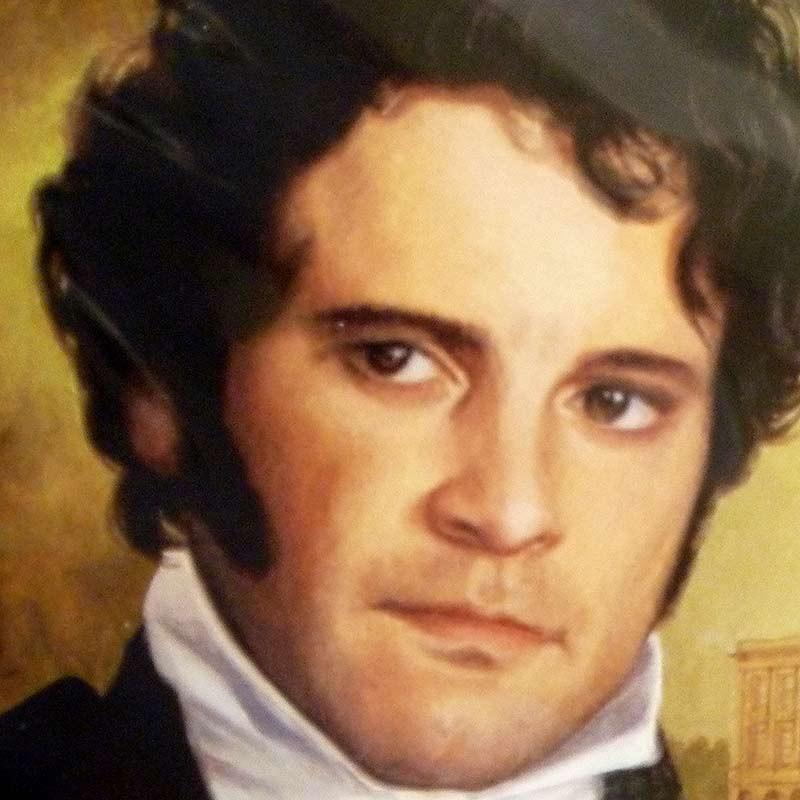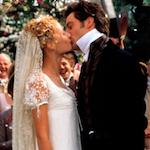Jane Austen News - Issue 139
What's the Jane Austen News this week?
Pride and Prejudice Retold in Pakistan
 US-based Pakistani author, Soniah Kamal, will soon be publishing her new book, Unmarriagable, which is (as you might have guessed from the heading) Jane Austen's Pride and Prejudice retold in modern-day Pakistan.
US-based Pakistani author, Soniah Kamal, will soon be publishing her new book, Unmarriagable, which is (as you might have guessed from the heading) Jane Austen's Pride and Prejudice retold in modern-day Pakistan.
The challenge of doing a retelling (versus an ‘inspired by’) in order to satisfy Jane Austen fans is that you have to hit all the beats in the plot as well as stay true to the essence of each of the characters. But then for readers who are not coming for Austen, you have to write a story that stands on its own legs. Setting it in Pakistan meant writing for those familiar with the culture and those new to it. Writing Unmarriageable was a real juggling act.
Exclamation Marks in Austen The exclamation mark gets a bit of a raw deal in prestigious grammar guides. The guides of the Times and the Guardian newspapers limit themselves to three words each: ‘Nearly always unnecessary’ and ‘Do not use’. Given that the view of some of the most respected grammar experts is to steer clear of the exclamation mark, at the Jane Austen News we were rather surprised when we came across the revelation that Jane Austen used and exclamation mark 495 times in Pride and Prejudice - averaging out at about two a page. However, this may be explained by the fact that within the novel the narrator never uses an exclamation mark. It is only the named characters who use them, and the marks are used within a character's direct speech (often to indicate how very silly they’re being). Hardly surprisingly therefore that of the first hundred exclamation marks in Pride and Prejudice, the majority belong to Mrs Bennet.
 As Mark Forsyth, in whose article for The Spectator (about Donald Trump and exclamations marks) we found the Austen-exclamation mark statistic, puts it: "the exclamation mark, for Miss Austen, was a marker of emotional incontinence".
As Mark Forsyth, in whose article for The Spectator (about Donald Trump and exclamations marks) we found the Austen-exclamation mark statistic, puts it: "the exclamation mark, for Miss Austen, was a marker of emotional incontinence".
A Jane Austen Festival in Ireland?
 The small town of Letterkenny in County Donegal in the North of the Republic of Ireland has been suggested as a location for a new festival dedicated to Jane Austen.
Why in Letterkenny? Why not in Dublin or another Irish city? Why in a small town instead?
The reason Letterkenny has been suggested as a prime location for a Jane Austen Festival is down to Councillor Jimmy Kavanagh. Cllr Kavanagh has called for an annual Jane Austen Festival as a way to mark her associations with the town in "an imaginative and appropriate way".
Cllr Jimmy Kavanagh has also successfully moved a motion calling for promotional literature to include reference to the fact that three of Jane Austen’s nieces are buried in Conwal and Tully Graveyard.
The small town of Letterkenny in County Donegal in the North of the Republic of Ireland has been suggested as a location for a new festival dedicated to Jane Austen.
Why in Letterkenny? Why not in Dublin or another Irish city? Why in a small town instead?
The reason Letterkenny has been suggested as a prime location for a Jane Austen Festival is down to Councillor Jimmy Kavanagh. Cllr Kavanagh has called for an annual Jane Austen Festival as a way to mark her associations with the town in "an imaginative and appropriate way".
Cllr Jimmy Kavanagh has also successfully moved a motion calling for promotional literature to include reference to the fact that three of Jane Austen’s nieces are buried in Conwal and Tully Graveyard.
Jane's nieces Marianne, Louisa and Cassandra Knight lived in the area in the 1800s. They were the daughters of Jane Austen’s older brother, Edward. In 1834, Cass married Lord George Hill, who owned vast amounts of land in north-west Donegal. They moved to Ballyarr House in Ramelton, and the Georgian estate remains there to this day. Cass died in 1842, shortly after giving birth to their fourth child. Her sister Louise moved to Donegal to bring up the children, and Marianne followed later. The two sisters are buried together in Tully Graveyard near Ballyarr. Cass is buried alongside Lord Hill in the graveyard of Conwal Parish Church at the top of the Church Lane Letterkenny.Cllr Dessie Shiels commented that the link is a tenuous one, but Cllr Kavanagh believes it is a valid link to highlight.
Austen = A Fairy Tale With A Biting Feminist Critique
 In an article published this week in the online magazine The Conversation, Robert Morrison, Professor of English Language and Literature at Queen's University in Ontario, put forward an excellent case for why Jane's works could well be described as fairy tales which incorporate social and feminist critiques.
In an article published this week in the online magazine The Conversation, Robert Morrison, Professor of English Language and Literature at Queen's University in Ontario, put forward an excellent case for why Jane's works could well be described as fairy tales which incorporate social and feminist critiques.
Mr. Darcy’s first marriage proposal to Elizabeth Bennet in Pride and Prejudice [...] is also the most telling example of Austen’s remarkable ability to combine wish fulfilment with social realism, and fairy-tale romance with biting cultural critique. On one level, the scene between the two would-be lovers is a world removed from harrowing accounts of sexual harassment and assault. Darcy is proposing marriage to Elizabeth, not sex, and in his eyes at least, it is a very romantic offer. [...] On a more fundamental level, though, the exchange between the two is full of irony and dark anxieties. Darcy is a wealthy and well-connected man who enjoys great freedom, and who moves assertively through a world of elegance and opportunity. Elizabeth is a younger and much more vulnerable woman who can already see poverty and spinsterhood out of the corner of her eye, and who can only obtain a place in the higher echelons of society through marriage to a man like Darcy.In the article Morrison also references the novelist and short story writer Carol Shields' thoughts on Austen. Shields declared that Austen exploited "an arch, incontrovertible amiability" to conceal "a ferocious and persistent moral anger." We thought it was an excellent read. Morrison's article can be found here. (On a final note, as a result of looking more into Carol Shields thoughts on Jane Austen - having read Morrison's article in which she's quoted, I came across a quote from Jane Austen: A Penguin Life, a book written by Carol Shields and published in 2001. In it Shields pitched the rather poignant idea that the influence of Austen's life on her fiction consists of the fictional search for a home of one's own. She argued that "the true subject of serious fiction is not 'current events,' ongoing wars or political issues but the search of an individual for his or her true home." I don't know about you, but reading as a means of better understanding yourself, and what your true home is, is one of the things that makes reading so compelling.)
 Jane Austen News is our weekly compilation of stories about or related to Austen. Here we will feature a variety of items, including craft tutorials, reviews, news stories, articles and photos from around the world. If you’d like to include your story, please contact us with a press release or summary, along with a link. You can also submit unique articles for publication in our Online Magazine.
Don’t miss our latest news – become a Jane Austen Member and receive a digest of stories, articles and Jane Austen news every week. You will also be able to access our online Magazine with over 1000 articles, test your knowledge with our weekly quiz and get offers on our Online Giftshop. Plus new members get an exclusive 10% off voucher to use in the Online Giftshop.
Jane Austen News is our weekly compilation of stories about or related to Austen. Here we will feature a variety of items, including craft tutorials, reviews, news stories, articles and photos from around the world. If you’d like to include your story, please contact us with a press release or summary, along with a link. You can also submit unique articles for publication in our Online Magazine.
Don’t miss our latest news – become a Jane Austen Member and receive a digest of stories, articles and Jane Austen news every week. You will also be able to access our online Magazine with over 1000 articles, test your knowledge with our weekly quiz and get offers on our Online Giftshop. Plus new members get an exclusive 10% off voucher to use in the Online Giftshop.


1 comment
I don’t know about you, but reading as a means of better understanding yourself, JOB DONE and what your true home is, is one of the things that makes reading so compelling.)
https://www.bbcode.org
Anonymous
Leave a comment
This site is protected by hCaptcha and the hCaptcha Privacy Policy and Terms of Service apply.